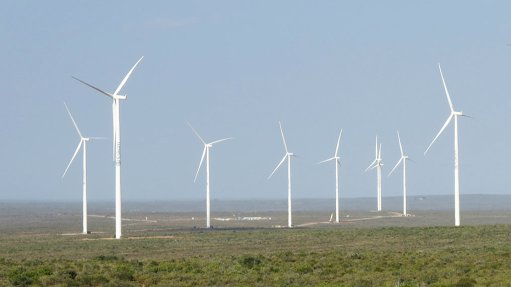Thieving Presidents
Africa has had more than its fair share of Big Men with sticky fingers. The latest to be outed as a kleptomaniac par excellence is deposed Sudanese strongman Omar Hassan al-Bashir, who amassed real estate and other property worthy an estimated $4-billion during his 30-year rule, which came to a rude end in April last year, when the army moved in to remove him as head of State amid mass protests across the length and breadth of the country.
The Sudanese authorities believe that the loot that has been identified to date – which includes hotels, farms, shopping malls and other property – is only the tip of the iceberg. This means that Bashir, who has already been sentenced to a two-year jail term in one corruption case, may yet be a contender for the most corrupt leader to have emerged on the continent in modern times.
This dubious honour is believed by many commentators to belong to Nigeria’s Sani Abacha, who led the West African nation as a military dictator from 1993 to 1998, when he died of a suspected heart attack. Several graft watchdogs claim he embezzled up to $5-billion from the public purse during his stint as head of State. According to the World Bank, part of this loot was obtained as bribes paid by foreign companies conducting business in Nigeria, while some of it was spirited away from the central bank. Through elaborate laundering schemes, the funds ended up in bank accounts held by Abacha himself and members of his family in Switzerland, Luxemburg, Liechtenstein, Jersey and the Bahamas. As much as $2.5-billion has since been returned by the Abacha family to the Nigerian State, in a bizarre deal that saw criminal charges against them being dropped.
Number two in the thieving stakes is Mobutu Sese Seko, the megalomanic who ruled what is now the Democratic Republic of Congo from 1965 to 1997. He is said to have helped himself to between $4-billion and $5-billion of public money – an amount that was equivalent to the country’s foreign debt when it defaulted on its international loans in 1989. Unlike the Abacha loot, not even a dime of what Mobutu stole has been returned to the Congolese treasury.
Other African kleptomaniacs of note include Equatorial Guinea’s current President, Teodoro Obiang Nguema Mbasago, who, according to Integritas360 – a global corporate and social enterprise – took personal control of the country’s treasury in 2003, arguing that this was the only way to prevent bureaucrats from being “tempted” to engage in corruption. A year later, he reportedly transferred $700-million into his and his family members’ foreign bank accounts. Then there is former Liberian dictator Charles Taylor, who allegedly amassed $50-million during his time at the helm, and Angola’s ex-President, Eduardo dos Santos, whose net worth is estimated at $20-million. The late Robert Mugabe, who lorded it over the long-suffering citizens of Zimbabwe for almost four decades, is widely believed to have had about $10-million in various bank accounts, in addition to several properties. This might seem a small amount, but it is not to sniffed at in a country with a very low per capita gross product, estimated at $859 in 2019.
The list of venal leaders – past and present – is much longer and includes the likes of Gabon’s Omar Bongo, Cameroon’s Paul Biya and the Central African Republic’s Jean-Bedel Bokassa.
It’s a tragedy that those entrusted with leadership responsibility see fit to use public resources to line their own pockets instead of doing their damnedest to improve the lot of those they lead. This unconscionable practice has filtered down to the lower rungs of many bureaucracies, with a survey conducted by Transparency International in 2019 finding that more than one in four Africans paid a bribe to access a public service from healthcare to education. What a shame!
Article Enquiry
Email Article
Save Article
Feedback
To advertise email advertising@creamermedia.co.za or click here
Press Office
Announcements
What's On
Subscribe to improve your user experience...
Option 1 (equivalent of R125 a month):
Receive a weekly copy of Creamer Media's Engineering News & Mining Weekly magazine
(print copy for those in South Africa and e-magazine for those outside of South Africa)
Receive daily email newsletters
Access to full search results
Access archive of magazine back copies
Access to Projects in Progress
Access to ONE Research Report of your choice in PDF format
Option 2 (equivalent of R375 a month):
All benefits from Option 1
PLUS
Access to Creamer Media's Research Channel Africa for ALL Research Reports, in PDF format, on various industrial and mining sectors
including Electricity; Water; Energy Transition; Hydrogen; Roads, Rail and Ports; Coal; Gold; Platinum; Battery Metals; etc.
Already a subscriber?
Forgotten your password?
Receive weekly copy of Creamer Media's Engineering News & Mining Weekly magazine (print copy for those in South Africa and e-magazine for those outside of South Africa)
➕
Recieve daily email newsletters
➕
Access to full search results
➕
Access archive of magazine back copies
➕
Access to Projects in Progress
➕
Access to ONE Research Report of your choice in PDF format
RESEARCH CHANNEL AFRICA
R4500 (equivalent of R375 a month)
SUBSCRIBEAll benefits from Option 1
➕
Access to Creamer Media's Research Channel Africa for ALL Research Reports on various industrial and mining sectors, in PDF format, including on:
Electricity
➕
Water
➕
Energy Transition
➕
Hydrogen
➕
Roads, Rail and Ports
➕
Coal
➕
Gold
➕
Platinum
➕
Battery Metals
➕
etc.
Receive all benefits from Option 1 or Option 2 delivered to numerous people at your company
➕
Multiple User names and Passwords for simultaneous log-ins
➕
Intranet integration access to all in your organisation

















